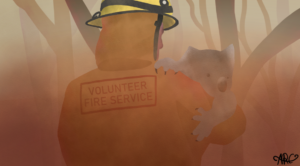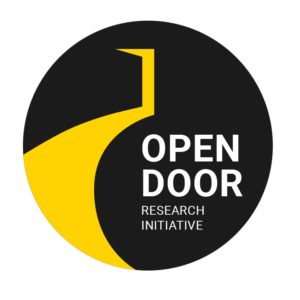 The unprecedented intensity and severity of the 2019/20 bushfires have impacted communities across Australia in significant ways. Many of those who responded and who continue to provide support were volunteers: on trucks, coordinating supports, looking after others, rebuilding.
The unprecedented intensity and severity of the 2019/20 bushfires have impacted communities across Australia in significant ways. Many of those who responded and who continue to provide support were volunteers: on trucks, coordinating supports, looking after others, rebuilding.
I have spoken with many volunteers already and will be keen to continue these conversations during 2021. Many people I’ve met already are everyday members of communities directly and indirectly affected by the fires who pitched in to support each other.
The overwhel ming majority ofvolunteers and paid firefighters do what they do because they want to serve their communities and help in times of need. They care about their communities and are likely to be impacted, as anyone would be, when they witness disasters befalling their communities.
ming majority ofvolunteers and paid firefighters do what they do because they want to serve their communities and help in times of need. They care about their communities and are likely to be impacted, as anyone would be, when they witness disasters befalling their communities.
With a warming and drying climate, understanding how to effectively support the wellbeing of volunteer and paid firefighters is a critical part of preparing our nation for the possibility of further significant bushfire seasons in future years.
What we have learnt so far about supporting the wellbeing of emergency services personnel
The Answering the Call: the first National Mental Health and Wellbeing Study of Police and Emergency Services on behalf of Beyond Blue provided the first national picture of the factors that enhance or impede the mental wellbeing of our first responders. Following the devastating 2019-20 bushfires, the Australian Government has provided additional funding through the Medical Research Future Fund to support our continuing research into the ongoing wellbeing of our volunteer and paid first responders.
Answering the Call showed that cumulative exposure to traumatic events can have negative consequences over the course of someone’s career and life, and emergency services personnel are at higher risk of developing mental health issues than the general population. However, it is not just the nature of extreme events that has an impact, but how we respond to them. One critically important factor is recognising changes in wellbeing early and seeking help when it is needed. Often mental health issues develop slowly over a period of months or years. We know that many first responders in need of help often avoid seeking help in a timely fashion or don’t receive enough help for their needs. Volunteers too are likely to reach out to family and friends first, and fellow volunteers and others in their communities, rather than reaching out to more formal supports.
A challenge for our future bushfire preparedness is sustaining a volunteer workforce of sufficient size and capacity to be able to respond to large-scale events without overtaxing volunteers to the point where they are at risk of burnout. This means both maintaining the existing volunteer workforce through providing the support, training and resources they need, and recruiting and training new volunteers in recognition of the increasing demands being placed on existing volunteers through more intense fire seasons.
Our ongoing research
Over the next two years we will continue to connect with communities to help us to understand what is needed to effectively support the long-term wellbeing of our volunteer and paid firefighters, and how to foster their ability to cope both now and into the future. We will continue to work with partners such as the Bushfire and Natural Hazards Cooperative Research Centre to ensure the information gained is fed into the development of strategies and programs to most effectively support the wellbeing of Australia’s first responders, and maintain our ability to respond to bushfire events in the future.
This research is being led by David Lawrence from The University of Western Australia in collaboration with Sharon Lawn at Flinders University and others in South Australia.
Please contact Sharon for more information: Sharon.lawn@flinders.edu.au or 0459 098 772
.

